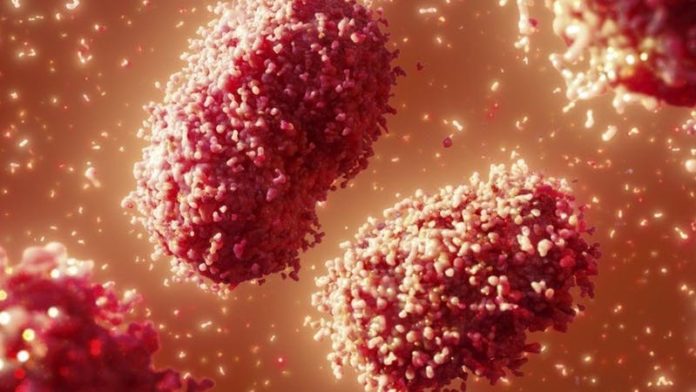
Grayson Joslin is a sophomore journalism and political science major and writes “Soapbox” for The Daily News. His views do not necessarily reflect those of the newspaper.
As a child, I remember eagerly awaiting to go to the Children’s Museum in Indianapolis.
I went about half a dozen times in my childhood, both on school trips and also during leisure time with my family. The world’s largest children’s museum was a vast expanse of fun and learning.
However, as the other kids were focused on learning about dinosaurs and being amazed at the glass sculptures of Dave Chihuly, I found myself in the most serious portion of the museum.
“The Power of Children: Making a Difference” is my favorite exhibit at the museum, as it explores the tales of children subjected to prejudice in their lives. The story that always captivated my attention was the story of Ryan White.
White was a middle school student in Indiana in the early 1980’s when he was diagnosed with AIDS, a condition that was stigmatized as only impacting the gay community, as most gay men were diagnosed with the condition in the early part of that decade. White was seen as a major force in making the public more aware of AIDS and decreasing homophobia relating to AIDS before his death in the 1990s.
I had hoped that there would not be any more stigmatization of the LGBT community due to any illnesses. Unfortunately, prejudice is starting to encompass another disease.
On July 23, the Director-General of the World Health Organization, Tedros Adnahom, declared the ongoing monkeypox as a public health emergency of international concern. Monkeypox, a viral disease whose most noticeable feature is a rash that lasts for around 2-4 weeks, has been prevalent on the African continent since its first human case in 1970. However, this is the first time monkeypox has been spread on a major scale outside of Africa.
This is most likely the first time people inside the Western world have heard of monkeypox, let alone the symptoms and how it spreads. This lack of knowledge has allowed homophobia to be spread, which can be devastating in the long run.
Most people who have been infected with monkeypox so far in the outbreak have been men who are gay or bisexual. A study from the New England Journal of Medicine from July of this year reported that 98% of cases came from gay or bisexual men, with 95% of the transmission being suspected to have happened during sexual activity. Even though most of the transmission takes place during intercourse, it is not a sexually transmitted infection. This is because STIs do not require contact with fluids to spread.
Even though most of the cases have been spread between LBGT people, they are not the only people susceptible to this disease. Like other diseases, everyone has a chance to contract monkeypox, but some groups are more vulnerable than others. The WHO stated that children and people with compromised immune systems are more likely to contract monkeypox.
Monkeypox is mostly spread through person-to-person contact, including during sexual contact. It can also spread through touching objects, especially if it is shared by two or more people, and also by contact with an animal that has been infected with monkeypox. Monkeypox is not a sexually transmitted disease, and it can be spread through other non-sexual means.
The stigma regarding gay and bisexual men and diseases is unfortunately not new. The discovery of AIDS in the 1980s led to discrimination toward LGBT men because the first cases were found in gay men. Even after straight males like Ryan White, tennis star Arthur Ashe and basketball icon Magic Johnson announced that they had HIV/AIDS, they were seen by the public as “innocent” victims of the disease while gay men were portrayed as the “guilty” parties.
It is not members of the LGBT community that have faced discrimination and stigma because of a disease. When COVID-19 shut the world down in 2020, there was a significant increase in race-motivated attacks on people with Asian heritage. Stop AAPI Hate, an organization dedicated to tracking hate crimes against Asian Americans and Pacific Islanders found that almost 12,000 incidents were reported between March 2020 and March 2022, with two-thirds of them involving harassment.
With the COVID-19 pandemic and the monkeypox outbreak in the past few years, we are dangerously close to falling into a routine where it is okay to tease and imitate people who have a disease. On Twitter, Fox News host Tucker Carlson tweeted a poll on what to rename monkeypox, with an option named “Schlong Covid” winning. This is not a comedy. This is blatant homophobia, echoing back to how LGBT men were treating the 1980s as AIDS became well known.
In a country where LGBT people are anxious for their rights after the Dobbs decision, the stigmatization has made the LGBT community more anxious and isolated. In a country that prides itself on being the land of the free, the fact that we stigmatize people so easily is disheartening. We must be willing to talk about this virus, even if it does concern a subject as touchy as sex.
We are all exhausted due to two years of COVID, but we must not be passive in this outbreak. In order to remain vigilant, we must stay informed. Educate yourself on monkeypox and what the risks are, and share that information. I do not want history to repeat itself and create more prejudice.
Contact Grayson Joslin with comments at Grayson.joslin@bsu.edu or on Twitter @GraysonMJoslin.








